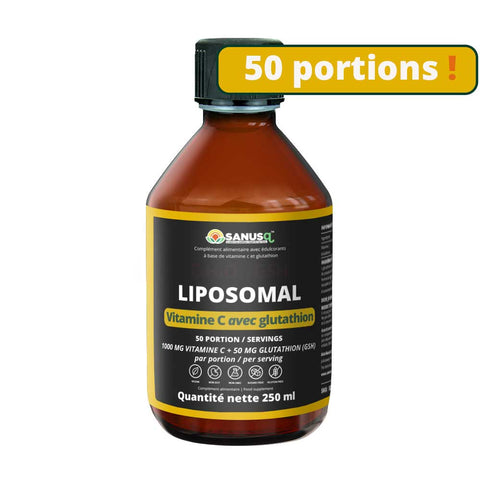SANUSq Health: Liposomal Coenzyme Q10 (Ubiquinone CoQ10) – 250ml
Boosts energy, supports heart health and promotes healthy ageing with Liposomal CoQ10
📅 Best before: 1 September 2026
🌍 Origin: United Kingdom
✅ Registered with DGAL (France): #2023-3-363
- French government certified for safety and compliance [View PDF Certificate]
🔖 SKU: SQ08LIPOQ10-250
📊 Barcode: 0769503273860
(Check our current promotions before buying)
Main ingredients: (per serving) Phospholipids 480 mg, Ubiquinone (coenzyme Q10) 200 mg. Refer to label for full list of ingredients.
Suggested daily dosage: Take 5ml per day, with meals. Shake the bottle well before each use. Do not use if seal is broken or missing. Discount bundle available (Click here)
Storage: Refrigerate after opening and consume within 60 days.
------------------------------
Product Description
- DGAL registered (France) #2023-3-363 [View PDF Certificate]
- Official French government certification ensuring compliance with EU supplement safety standards.
- 200mg Co-enzyme Q10 and 480mg Phospholipids per serving
- Liposomal CoQ10 for improved bioavailability and absorption
- Vegan, Non-soy, Non-GMO, Sugar free, Gluten free
- Screw top bottle with measuring cup
- A vital anti-oxidant in a highly absorbable form
- Helps generate energy for your cells
Liposomal CoQ10 Benefits in a Nutshell
- Boosts energy production
- Supports cardiovascular health and functions
- Powerful antioxidant, reduces inflammation
- Provides relief in muscle weakness and general fatigue
- Helpful in migraine
- Prevents premature ageing
- Boosts energy levels
- Good for periodontal (gum) disease
- Improves fertility in both men and women
- Beneficial for pre-diabetics and diabetics
- Contains no soy, gluten or GMO ingredients
CoQ10: The spark plug of Life
CoQ10 is a co-enzyme produced naturally by the body and is present in every cell. However, the coenzyme is present in highest concentrations in tissues that require high amounts of energy to function, such as the heart, liver, pancreas and immune system. CoQ10 can easily be called the spark plug of life due to its indispensable role in energy production in the cells.

CoQ10 helps in energy production
The cells in our body need continuous energy to carry out life-sustaining bio-chemical reactions, required for various processes such as cellular reproduction, repair, maintenance and elimination of toxic waste. Within the cells, the tiny organelles called the mitochondria burn fuel (fats, carbohydrates and proteins) to produce this energy (ATP) in a complex series of chemical reactions, where CoQ10 plays a vital role. Poor CoQ10 levels means impaired energy production.
CoQ10 is a powerful anti-oxidant
This is another mechanism through which CoQ10 helps support our health. It works as an antioxidant – and protects tissues and organs against damage caused by free radicals. These highly reactive molecules attack and destroy cellular structures like proteins, lipids, mitochondria and DNA, triggering body-wide inflammation, premature ageing, mitochondrial dysfunction, and many health problems that are associated with inflammation.
In addition, CoQ10 helps regenerate other antioxidants like Vitamins C and E, further strengthening the body’s ability to deal with inflammation, infections and diseases.
CoQ10 and cardiovascular functions
CoQ10 is considered an extremely heart healthy nutrient, mostly because of its critical role in supplying energy to heart muscle cells. In any heart condition, improving the energy production in the heart muscle is an important goal. It is not a surprise that CoQ10 exists in highest concentrations in the heart and other organs that have gruelling energy requirements. Again, as an antioxidant, CoQ10 also inhibits oxidation of LDL cholesterol, and prevents inflammation that may result in plaque build-up within the arteries.
Research suggests that CoQ10 supplements can be remarkably effective in:
- Congestive heart failure [1-2]
- Improving heart muscle functions
- Reducing injury to heart muscle during a heart attack
- Improving endothelial functions
- Regulating high blood pressure
- Improving angina symptoms and exercise capacity
- Heart surgery
- Reduces risk of cardiovascular heart disease in people with diabetes [3]
CoQ10 Overall Health Benefits
CoQ10 delivers tremendous benefits throughout the body. It is extremely good for your heart health, boosts immunity and may help in managing many health conditions such as muscle dystrophy, congestive heart failure, arrhythmia, angina, gingivitis, migraine, high blood pressure, diabetes [4], and infertility.
Research shows that CoQ10 supplements help:
- Reduce pain, fatigue and morning tiredness in people with fibromyalgia [5-6]
- Improves gum health, treats periodontal disease [7]
- Reduce frequency, severity, and duration of migraine headaches [8-9]
- Improves exercise performance and relieves fatigue
- Reduce muscle pain associated with statins (cholesterol lowering drugs) [10]
- Improves fertility [11]
What causes CoQ10 deficiency?
- Ageing (CoQ10 natural production in the body declines as we age)
- Poor diet
- Deficiency in B-vitamins and trace minerals (required for CoQ10 synthesis)
- Exposure to environmental toxins
- Chronic infections
- Long-term stress
- Smoking
- Long-term use of statins
- Overuse of antibiotics, anti-depressant drugs and beta blockers (commonly prescribed to lower high blood pressure)
Did you know statin drugs also block CoQ10 production in the body?
People who are on statins (cholesterol lowering drugs) are at an increased risk for CoQ10 deficiency. Statins block a specific enzyme involved in the production of cholesterol but as this enzyme also helps in the production of CoQ10 (along with other important molecules such as vitamin D, selenoproteins and hormones), this is the reason why people using statins often complain of pain and weakness in muscles. Depletion of CoQ10 also impact heart muscle functions. If you are taking statins, it is important to take CoQ10 supplements to prevent deficiency of CoQ10 as well as other important molecules such as vitamin D.
CoQ10 with Liposomal Technology
Liposomes are tiny spherical vesicles made up of double layer of phospholipids, the type of fat also present in cell membranes. CoQ10 from SANUSq uses this ground-breaking liposomal technology, where nano sized liposomes are used to carry and deliver nutrients (CoQ10 molecules) directly to the cells and tissues.
Liposomal encapsulated CoQ10 achieves enhanced bioavailability, as this technique protects the nutrient from breaking down in the gastric juices. It also allows the nutrient to cross the cell membrane barrier without any opposition, as liposomes have the same chemical structures as that of cell membranes. This allows for direct and easier absorption of CoQ10, meaning significantly higher levels of CoQ10 reaches the bloodstream and the cells, and without the risk of any gastrointestinal distress. Non-liposomal CoQ10, on the other hand, has a low rate of absorption and utilization by the cells.
Why choose Liposomal CoQ10 from SANUSq?
- Uses phosphatidylcholine derived from non-GMO sunflower oil
- Uses only natural flavours (such as fruit and berry extracts)
- Contains no MSG, or any other synthetic chemical.
- Contains no soy or gluten
Precautions
Side effects of taking CoQ10 are rare, but may include rashes, nausea, upper abdominal pain, dizziness, sensitivity to light, irritability, headache, heartburn, and fatigue. Medicines for high cholesterol (statins) and medicines that lower blood sugar cause a decrease of CoQ10 levels and reduce the effects of CoQ10 supplements.
References
- Lorenzo et al. Clinical Evidence for Q10 Coenzyme Supplementation in Heart Failure: From Energetics to Functional Improvement. J Clin Med. 2020.
- James J DiNicolantonio, Jaikrit Bhutani, Mark F McCarty and James H O'Keefe. Coenzyme Q10 for the treatment of heart failure: a review of the literature. Open Heart 2015.
- Dludla et al. The impact of coenzyme Q10 on metabolic and cardiovascular disease profiles in diabetic patients: A systematic review and meta-analysis of randomized controlled trials. Endocrinology, Diabetes & Metabolism.
- Liang et al. Effects of coenzyme Q10 supplementation on glycemic control: A GRADE-assessed systematic review and dose-response meta-analysis of randomized controlled trials. Lancet. 2022.
- Alcocer‐Gómez et al. Effect of Coenzyme Q10 on Psychopathological Symptoms in Fibromyalgia Patients. CNS Neurosci Ther. 2017.
- Sawaddiruk et al. Coenzyme Q10 supplementation alleviates pain in pregabalin-treated fibromyalgia patients via reducing brain activity and mitochondrial dysfunction. Free Radic Res. 2019
- ElBarbary et al. The Effect of Using Coenzyme Q10 With Non-Surgical Periodontal Treatment on MMP9 Gingival Crevicular Fluid Level in Patients With Periodontitis: Randomized Controlled Trial. Advanced Dental Journal. 2022.
- Sazali et al. Coenzyme Q10 supplementation for prophylaxis in adult patients with migraine—a meta-analysis. Neurology. 2021
- Shoeibi et al. Effectiveness of coenzyme Q10 in prophylactic treatment of migraine headache: an open-label, add-on, controlled trial. Acta Neurol Belg. 2017
- Qu et al. Effects of Coenzyme Q10 on Statin‐Induced Myopathy: An Updated Meta‐Analysis of Randomized Controlled Trials. JAHA. 2018.
- Florou et al. Does coenzyme Q10 supplementation improve fertility outcomes in women undergoing assisted reproductive technology procedures? A systematic review and meta-analysis of randomized-controlled trials. J Assist Reprod Genet. 2020.

Disclaimer
Information on our websites, in our blogs and our emails are provided for informational purposes only, and have not been evaluated by the EMA, EFSA or FDA. It is not meant to substitute medical advice provided by your healthcare professional and is not intended to diagnose, treat, cure, or prevent any disease. Our products are intended for adults, 18 years of age and older. While CoQ10 has been shown to have various health benefits, it is important to remember that supplements and dietary changes should be considered as part of an overall health plan and not as a substitute for professional medical treatment. Only a qualified healthcare practitioner can provide personalized advice and treatment plans based on your individual health needs and medical history, and you should seek advice from your healthcare professional before taking product(s) if you are pregnant or nursing.


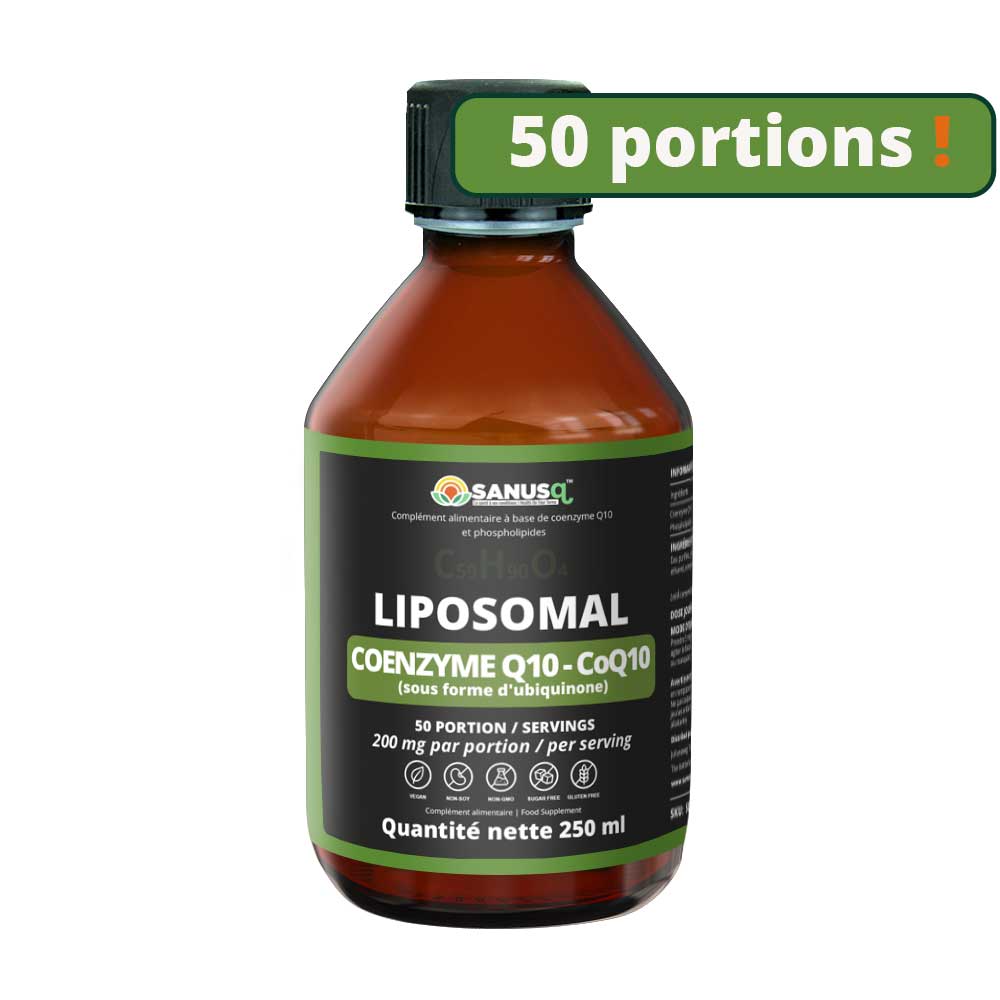
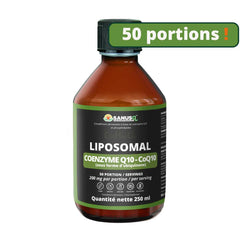

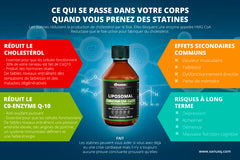
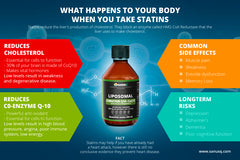




 Pin it
Pin it